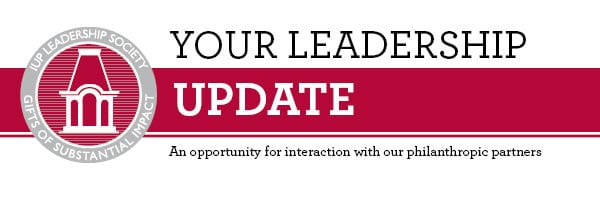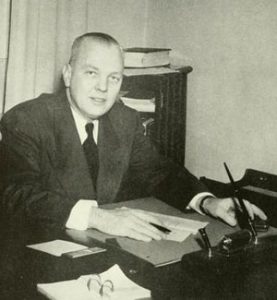No university president welcomes unproductive controversy, but when it happens, you have two choices. You can ignore it until it festers, or you face it head on. This year, we stared it straight in the face.
It was just a year ago, in IUP Magazine, that I said campuses across the country have become battlegrounds for issues related to the First Amendment. In fact, that same edition of the magazine featured the story, “Speak Out, Listen Up,” which provided readers with coverage and an honest look at related circumstances at IUP.
Since then, the IUP community has dug into the issues during what we’ve referred to as the Year of Free Speech. As a public university, IUP is obligated to uphold the tenets of the First Amendment, regardless of the offending rhetoric’s flavor at any given time. Our aim has been to make students understand that those with opposing viewpoints have the right to say anything they want. Likewise, we want our students to recognize that just because they can say anything doesn’t mean they should.
Throughout the academic year, students, faculty and staff members, and the entire surrounding community have accessed a broad spectrum of programs and viewpoints that have included appearances by Jeffrey Rosen, president and CEO of the National Constitution Center and Greg Lukianoff, president of the Foundation for Individual Rights in Education and author of The Coddling of the American Mind. If you want to get a sense of all the programming, you can see videos of many of the presentations—including Lukianoff’s and Rosen’s—on the IUP Free Speech Project website.
It is quite likely that IUP’s Year of Free Speech could stretch into a few more years. After all, it’s our job to make sure students understand the power of their words as well as our nation’s laws. We must challenge them to rise above what they see on the mean streets of social media and the 24/7 cable cycle—that disagreeing is acceptable, but, to be effective as leaders and community members, they must disagree lawfully and through thoughtful, civil discourse. It’s a must, not only because employers demand people skills and interpersonal qualities but also because we’re in the business of shaping discerning critical thinkers and great human beings.

